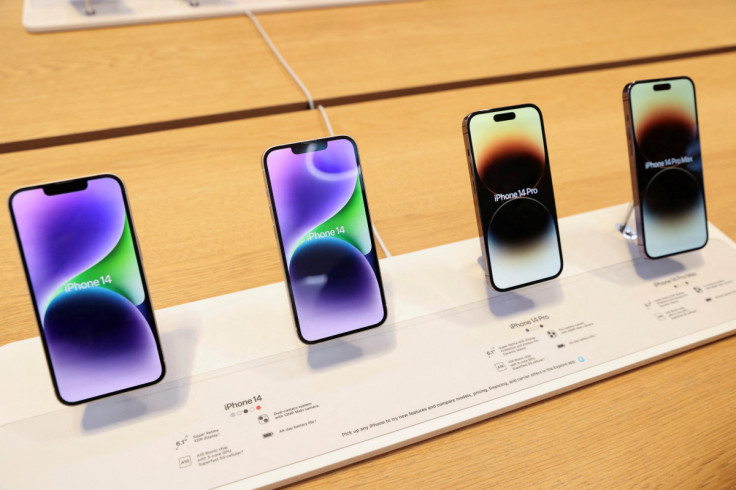Apple could face ban in Europe if iPhone 15 USB-C port doesn't work with all cables
Apple will reportedly not wait until December 2024 to switch to a unified USB Type-C port.

Apple's highly-anticipated iPhone 15 series might not be available for purchase in Europe if the American tech giant encrypts the USB-C interface. It is no secret that Apple will probably be forced to use the USB Type-C interface on its next-generation iPhone models.
However, analysts claim the switch to USB-C connectivity will come with a huge catch. Reportedly, the company is planning to encrypt the USB Type-C interface in a bid to protect accessories. As a result, non-MFi-certified chargers and data cables will offer limited charging speed and slower transmission when connected to the iPhone 15's USB Type-C port.
If USB-C doesn’t come to the iPhone 15 Pro, I’m switching to Android. pic.twitter.com/oLYCvBO7HO
— Joe (@RealJoseph123) May 4, 2023
Now, European Union Industry Commissioner, Thierry Breton has sent a letter to Apple to remind the American tech giant that it shouldn't restrict third party USB Type-C data cables. According to a report by Zeit Online, the iPhone 15 series could face a ban if its new port has limitations for certain accessories.
European Union Warns Apple
Furthermore, the German DPA claims Apple was informed of this in March during an EU meeting. So, if the company still implements the MFi (Made for iPhone) certification process, it will end up breaking EU law. The EU wants to ensure that users can charge their devices using any cable.
In other words, the USB Type-C cable should be compatible with all your devices across different brands. In October 2022, the EU passed a related bill, which required tablets and smartphones to have a unified USB Type-C interface. This would minimise electronic waste such as multiple data cables and chargers.
The EU has WARNED Apple about throttling charging and data speeds on 3rd-party USB-C cables when the iPhone 15 releases 😳‼️
— AppleTrack (@appltrack) May 4, 2023
The company could face penalties if they do not comply with the law, which goes into effect on December 28, 2024... pic.twitter.com/HkO4DqDR3x
All brands have to comply with the bill by December 2024. The word on the street is that Apple will bring the USB-C interface for this year's iPhone models. The iPhone 15 series is expected to comprise four models including the base iPhone 15, iPhone 15 Plus, iPhone 15 Pro, and the iPhone 15 Pro Max (Ultra) models.
The new EU rules indicate that it is game over for Apple's Lightning cable even in non-EU regions like the UK. While the UK Government isn't likely to put a similar rule in place, a report by Evening Standard suggests Apple might not create a UK-only version of the iPhone 15.
The new law requires all new portable devices like smartphones, tablets, and laptops sold within the EU to have a common charging port by 2024. That being said, it looks like a considerable number of these brands won't be waiting for the deadline before switching to the new charging port for their devices.
Will the EU ban iPhone 15 series sales?
Nevertheless, these are only speculations surrounding Apple's plan. So, iPhone fans in the European Union do not need to panic just yet. Also, since the UK is not a part of the EU, it will not be affected by possible EU restrictions on iPhone sales.
However, the folks at Tom's Guide suggest there could be "secondary effects" since Apple will have to withdraw massive stocks from Europe. Alternatively, the company could introduce MFi and still try to sell its next-generation iPhones in the EU by winning a legal battle. It is no secret that Apple does not shy away from fighting in the courtroom.
Also, the new EU ruling will not come into force until December 2024. Apple is expected to launch next year's iPhones in September. So, the Cupertino-based tech firm can wait until iPhone 17 in 2025 to fully comply with the EU ruling.
iPhone 15 Pro design - new Action button (replacing Mute Switch), larger camera bump and USB-C port
— Apple Hub (@theapplehub) May 4, 2023
Are you planning to upgrade?
Renders: @wilson_boi_101 pic.twitter.com/asVbWc9fqV
Meanwhile, the new iPhones are also expected to adopt a new curved design. The Pro Max will reportedly house an improved zoom camera. Lastly, the entire iPhone 15 Pro lineup will probably pack a 3nm chipset under the hood. Apple will put these speculations to rest during the iPhone 15 series launch.
Apple iPhone 15 Pro models support real-time 4K recording. #Apple #iPhone15Pro pic.twitter.com/PWYfB4pPHl
— Ashish (@LilacLuTs) April 28, 2023
If rumours turn out to be true, the iPhone 15 and iPhone 15 Plus will support USB 2.0 speeds (480 megabits per second). The iPhone 15 Pro and Pro Max, on the other hand, will come with Thunderbolt (40 gigabits / 40,000 megabits per second). The Pro lineup is also expected to support output to monitors at up to 4K.
© Copyright IBTimes 2025. All rights reserved.






















